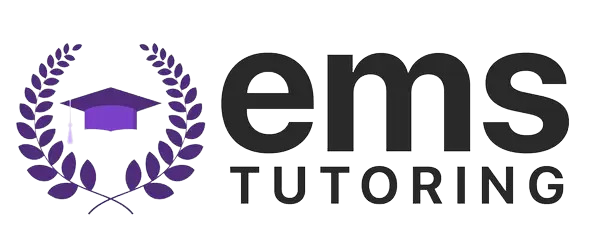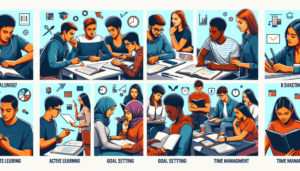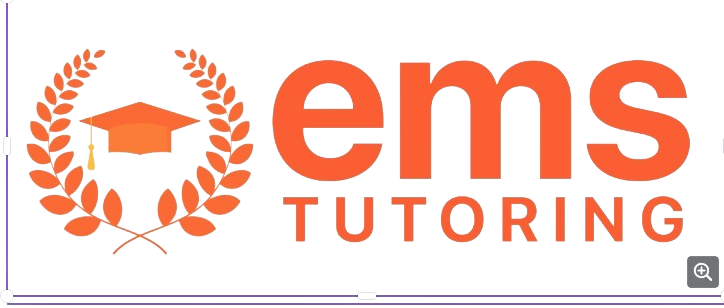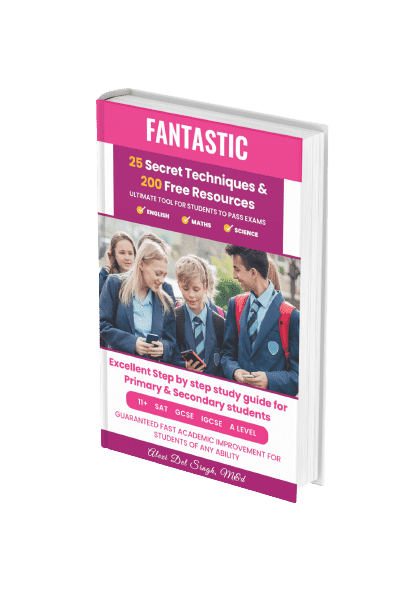Are you a student looking for effective study strategies to boost your academic success? Look no further! In this article, we will provide you with valuable insights and tips on how to excel in your studies. From revision techniques and exam preparation to time management and problem-solving skills, we’ve got you covered. Whether you’re studying GCSE Maths or delving into complex concepts like algebra and trigonometry, these study strategies will help you navigate your educational journey with confidence. So, let’s dive in and discover the keys to tutoring success!
Effective Study Strategies
Welcome to this comprehensive guide on effective study strategies! In this article, we will explore various techniques and methods that can help you optimize your learning experience and achieve academic success. Whether you’re a student preparing for exams or someone looking to enhance their knowledge, these strategies will provide you with valuable insights and practical tips. Let’s dive in!
Understanding Learning Styles
Before we dive into specific study strategies, it’s crucial to understand your learning style. Everyone has their unique way of processing and retaining information, and identifying your learning style can greatly enhance your study efforts. There are three primary learning styles:
Visual Learners
If you are a visual learner, you learn best through visual aids such as diagrams, graphs, and charts. To make the most of your study sessions, consider incorporating visuals into your learning process. Create colorful mind maps, draw diagrams to illustrate concepts, and utilize flashcards to reinforce your understanding.
Auditory Learners
Auditory learners grasp information more effectively through hearing and listening. If you identify as an auditory learner, try recording lectures or reading aloud to yourself. Study in quiet environments, as background noise can be distracting. Additionally, engaging in group discussions or finding a study partner who enjoys talking about the subject matter can be beneficial for your learning process.
Kinesthetic Learners
Kinesthetic learners learn through physical activities and hands-on experiences. If you are a kinesthetic learner, try incorporating movement into your study routine. Take short breaks for stretching or engaging in light exercise. Additionally, utilizing hands-on learning materials, such as models or manipulatives, can enhance your comprehension and retention.
Adapting Study Techniques to Learning Styles
Understanding your learning style is just the first step. To maximize your study efforts, adapt your study techniques to align with your learning style. For example, visual learners can create visual aids or watch educational videos, while auditory learners might benefit from listening to recorded lectures or podcasts.
Setting Clear Goals
Setting clear goals is essential for effective studying. Without a clear vision of what you want to accomplish, it’s easy to get lost in the sea of information. Here are some steps to help you set clear study goals:
Identifying Specific Study Goals
Start by identifying specific goals for each subject or topic you’re studying. Instead of vague goals like “I want to do well in math,” specify the areas you want to excel in, such as algebra, geometry, or trigonometry.
Breaking Down Goals into Manageable Tasks
Once you’ve set your goals, break them down into smaller, manageable tasks. For example, if your goal is to improve your understanding of algebraic equations, break it down into subtasks like practicing different types of equations or solving word problems.
Setting Realistic Timeframes
While it’s important to challenge yourself, setting unrealistic timeframes can lead to frustration and burnout. Be honest with yourself and set realistic timelines for each task. Consider your other commitments, such as extracurricular activities or family obligations, when creating your study schedule.
Creating a Study Schedule
A well-planned study schedule can greatly enhance your productivity and help you stay on track with your goals. Here are some tips for creating an effective study schedule:
Allocating Sufficient Study Time
Dedicate an adequate amount of time to each subject or topic you need to cover. Consider the complexity of the material and the amount of time required for effective learning. Plan shorter study sessions with regular breaks to maintain focus and avoid mental fatigue.
Prioritizing Different Subjects or Topics
Identify the subjects or topics that require more attention or are more challenging for you. Prioritize these areas in your study schedule, allocating more time and energy accordingly. By focusing on your weaknesses, you can turn them into strengths over time.
Creating a Balanced Study Routine
Avoid spending excessive time on one subject or topic at the expense of others. A balanced study routine ensures that you cover all necessary material while preventing burnout. Alternate between different subjects or topics to keep your mind engaged and maximize retention.
Considering Peak Cognitive Performance
Take advantage of your brain’s natural peaks of cognitive performance. Determine the time of day when you feel most alert and focused, and schedule your most challenging study sessions during those hours. This will help optimize your learning and comprehension.
Organizing Study Materials
An organized study environment and well-maintained study materials are key to efficient and effective studying. Use the following strategies to keep your materials in order:
Effective Note Organization
Develop a consistent system for organizing your notes. Use headings, subheadings, and bullet points to structure your notes. Color-code your notes or use different fonts to differentiate between main ideas, examples, and key definitions. This will make reviewing and revisiting your notes much easier.
Using Folders, Binders, or Digital Tools
Keep your physical study materials, such as worksheets, textbooks, and handouts, neatly organized in folders or binders. If you prefer digital organization, utilize note-taking apps or cloud storage solutions to keep your documents easily accessible and searchable.
Creating Study Guides or Summaries
Create study guides or summaries for each subject or topic you’re studying. Condense the key information and concepts into concise notes or flashcards. These study aids will come in handy during revision sessions and before exams.
Keeping Track of Assignments and Deadlines
Maintain a record of assignments, projects, and deadlines. Use a planner, digital calendar, or task management app to manage your commitments effectively. Having a clear overview of your upcoming tasks will help you prioritize and allocate time accordingly.
Note-Taking Techniques
Taking effective notes is a crucial skill for any student. Here are some note-taking techniques that can enhance your learning experience:
Active Listening and Engaging with the Material
Engage actively with the material during lectures or when reading textbooks. Listen actively, ask questions, and participate in discussions. Actively engaging with the material helps solidify your understanding and retention.
Using Abbreviations and Symbols
Develop your own system of abbreviations and symbols to streamline your note-taking process. Instead of writing complete sentences, use shorthand or abbreviations for common words or phrases. This will help you capture important information more efficiently.
Highlighting Key Concepts or Ideas
Highlight or underline key concepts, formulas, or definitions in your notes. This visual emphasis will make it easier to revisit and review the most important information later.
Organizing Notes with Headings and Subheadings
Use headings and subheadings to structure your notes and create an organized hierarchy of information. This will make it easier to locate specific topics or find relevant information when studying or revising.
Active Reading Strategies
Reading textbooks or other educational materials can sometimes feel overwhelming. Employing active reading strategies can significantly improve your comprehension and retention. Here are a few techniques to try:
Previewing and Skimming for Main Ideas
Before diving into a text, spend a few minutes previewing the chapter or section. Skim headings, subheadings, and bolded or italicized text to get an overview of the main ideas. This will help you understand the structure and context of the material.
Annotating Texts
Mark up your textbooks or readings with annotations. Underline or highlight important passages, write brief summaries in the margins, and jot down questions or thoughts that arise while reading. This active engagement helps reinforce your understanding and facilitates later review.
Developing Questions while Reading
As you read, make a habit of formulating questions about the content. This encourages active thinking and helps you stay engaged with the material. Write down these questions and strive to answer them as you progress through the text.
Summarizing and Reflecting on the Content
After completing a section or chapter, take a moment to summarize the main points in your own words. Reflect on what you’ve learned and how it connects to your prior knowledge. Writing brief summaries or discussing the material with a study partner can also reinforce your understanding.
Utilizing Mnemonic Devices
Mnemonic devices are memory aids that can help you remember and recall information more effectively. Here are some commonly used mnemonic devices you can incorporate into your studying:
Acronyms and Acrostics
Create acronyms or acrostics to remember lists or sequences. In an acronym, each letter stands for a word or concept. In an acrostic, the first letter of each word forms a memorable phrase. For example, “PEMDAS” represents the order of operations in mathematics (Parentheses, Exponents, Multiplication, Division, Addition, Subtraction).
Chunking and Grouping
Break down large amounts of information into smaller, more manageable chunks or groups. By organizing related concepts together, you make it easier for your brain to process and retain the information. This technique is particularly useful for memorizing long lists or categorized information.
Rhymes and Songs
Create rhymes, poems, or songs to remember important facts or concepts. The rhythmic and melodic nature of these mnemonic devices can significantly enhance your memory retention. Many people find it easier to recall information when it’s presented in a musical or poetic format.
Visual Imagery and Associations
Associate new information with vivid mental images or visualizations. Try to make the images humorous or exaggerated to make them more memorable. As you review the material, recall these mental images to trigger your memory of the associated information.
Using Visualization Techniques
Visualization techniques harness the power of mental imagery to aid learning and memory. Here are some visualization techniques you can incorporate into your study routine:
Creating Mental Images
As you study, consciously create mental images representing the concepts or ideas you’re learning. Imagine yourself experiencing or interacting with the information in a vivid and memorable way. Associating visuals with abstract concepts can facilitate better understanding and recall.
Mind Mapping
Use mind maps to visually organize information and establish connections between different concepts. Start with a central theme or topic and branch out into subtopics and related ideas. Mind maps provide a visual overview of the entire subject and help you grasp the relationships between different components.
Drawing Diagrams or Flowcharts
For subjects that involve processes or systems, drawing diagrams or flowcharts can be immensely helpful. Visualize the steps or components of a process and create a visual representation. This visual representation will make it easier to understand the sequence and relationships between different elements.
Using Graphic Organizers
Graphic organizers like concept maps, Venn diagrams, or charts can help you organize and connect information visually. These tools provide a structured framework for organizing your thoughts and relationships between different ideas. Utilize graphic organizers to create visually appealing summaries of complex concepts or theories.
Practicing Self-Discipline
Staying disciplined and maintaining focus are vital components of effective study strategies. Here are some tips to help you practice self-discipline:
Eliminate Distractions
Minimize distractions by creating a study environment free from interruptions. Put your phone on silent mode or keep it out of sight. Find a quiet and well-lit space where you can concentrate without external disturbances.
Set Achievable Study Targets
Break your study sessions into manageable time blocks and set achievable targets for each block. For example, aim to complete a certain number of math problems or read a specific amount of content. Accomplishing these smaller goals will keep you motivated and focused.
Take Regular Breaks
While studying for extended periods may seem productive, your brain needs breaks to recharge and process information. Take short, scheduled breaks after every focused study session. Use this time to relax, stretch, or engage in a brief physical activity to maintain your energy levels.
Practice Time Management
Develop effective time management skills to ensure you allocate sufficient time for studying without neglecting other important aspects of your life. Prioritize your tasks, create to-do lists, and establish a study routine that works best for you.
Seeking Help and Support
Don’t hesitate to seek help and support when needed. Everyone encounters challenges in their learning journey, and reaching out for assistance can be a game-changer. Here are a few avenues you can explore:
Forming Study Groups or Partnerships
Collaborating with peers in study groups or partnerships can provide fresh perspectives and support. Engaging in discussions, sharing resources, and solving problems together can enhance your understanding of the material and boost your motivation.
Collaborating with Peers
Beyond study groups, collaborating with classmates on projects or assignments can deepen your understanding. Working together allows you to share ideas, learn from one another, and tackle complex tasks as a team.
Utilizing Tutoring or Academic Resources
If you find yourself struggling with certain subjects or topics, consider seeking the help of a tutor or utilizing academic resources provided by your school or institution. Tutors can provide one-on-one guidance and clarify concepts, while academic resources may offer additional practice materials or explanations.
Seeking Guidance from Teachers or Mentors
Your teachers and mentors are valuable resources who can provide guidance and support. Seek advice from them regarding study strategies or any specific challenges you’re facing. They can offer valuable insights and tailor recommendations based on their experience and expertise.
In conclusion, effective study strategies are essential for achieving academic success. By understanding your learning style, setting clear goals, creating a study schedule, organizing study materials, employing effective note-taking and reading strategies, utilizing mnemonic devices and visualization techniques, practicing self-discipline, and seeking help and support when needed, you can optimize your learning experience and reach your full potential. Remember, learning is a lifelong journey, and implementing these strategies will empower you to become a more efficient and successful student. Happy studying!











